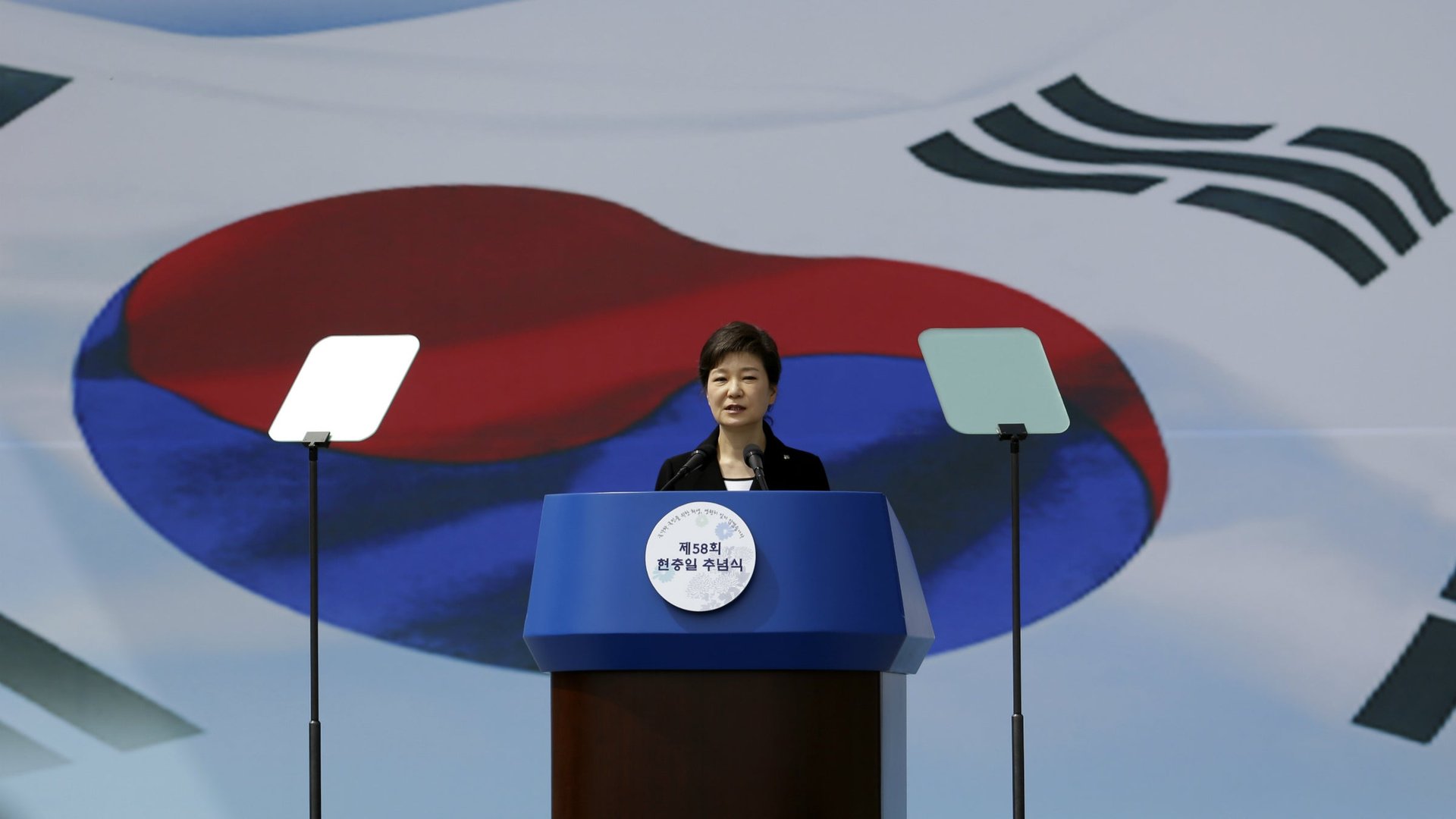For all the angst about Abenomics, South Korea actually looks ok
South Korea upgraded its 2013 growth forecast from 2.3% to 2.7% on Thursday. For all the worry that Japan’s devaluation of its currency was going to cripple South Korea’s export-dependent economy, Asia’s sixth-largest economy is actually doing ok.


South Korea upgraded its 2013 growth forecast from 2.3% to 2.7% on Thursday. For all the worry that Japan’s devaluation of its currency was going to cripple South Korea’s export-dependent economy, Asia’s sixth-largest economy is actually doing ok.
Part of the credit goes to its new president, Park Geun-hye, who took office in February and immediately added an extra 17.3 trillion won ($15 billion) to the budget, among other growth-encouraging measures. The central bank joined in the stimulus effort with an interest rate cut, down a quarter of a percentage point to 2.5%.
Their moves seem to have done the trick. Exports rose a surprising 3.2% in May from a year earlier, mostly on smartphone sales, defying analyst projections of a 0.9% drop. And May’s current account surplus hit $8.64 billion—a record high, according to new central bank figures—indicating robust structural health.
The other reason that South Korea’s economy is looking more promising is that Japan’s stimulus measures threatened to unleash a storm that never really came. South Korea competes directly with Japan in many industries such as car manufacturing, and relies on exports for up to 60% of its GDP. For that reason, the sharp devaluation of Japan’s yen, part of the economic policies known as Abenomics, seemed a dangerous prospect that would make South Korea’s competing goods more expensive to foreign buyers. South Korea even implored the G8 to do something about it.
But the impact of Japan’s currency devaluation has been minimal. Japan’s own exports rose in value terms last month but dropped in volume, and there are other signs that Abenomics might be faltering. If Japan has undercut South Korean exports, the difference has been made up by recovering demand in China and the US.
There are still risks for South Korea. China’s ongoing liquidity crunch has investors worried that if China slows, the knock-on impact will be on South Korea, which relies on China as its biggest export market. China’s central bank is busy reassuring its banks that it won’t let the country fall into full-blown crisis, but not everyone is convinced.